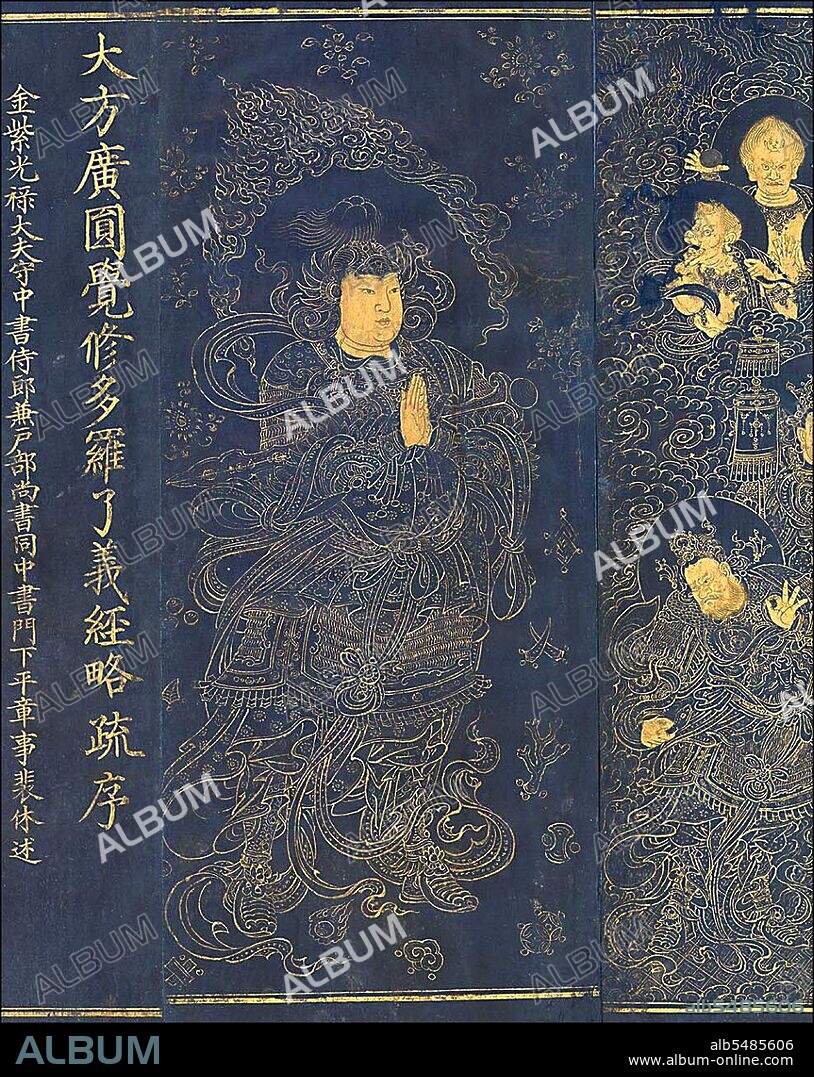alb5485606
China: 19th century binding for concertina-folded (jingzhe zhuang) book, in this case a Chinese translation of the Heart of Perfect Wisdom sutra (Maha Prajna Paramita Sutra)

|
Ajouter à une autre Lightbox |
|
Ajouter à une autre Lightbox |



Avez-vous déjà un compte? S'identifier
Vous n'avez pas de compte ? S'inscrire
Acheter cette image.
Sélectionnez l'usage:

Titre:
China: 19th century binding for concertina-folded (jingzhe zhuang) book, in this case a Chinese translation of the Heart of Perfect Wisdom sutra (Maha Prajna Paramita Sutra)
Légende:
Voir la traduction automatique
Prajñaparamita (Sanskrit Prajñaparamita; Tibetan sherchin) means 'Perfection of (Transcendent) Wisdom'. Prajñaparamita is a central concept in Mahayana Buddhism and its practice and understanding are taken to be indispensable elements of the Bodhisattva Path. The practice of Prajñaparamita is elucidated and described in the genre of the Prajñaparamita sutras, which vary widely in length and exhaustiveness. The monk Xuanzang returned to China from India with three copies of the Mahaprajñaparamita Sutra which he had secured from his extensive travels. Xuanzang, with a team of disciple translators, commenced translating the voluminous work in 660 CE using the three versions to ensure the integrity of the source documentation. Xuanzang was being encouraged by a number of the disciple translators to render an abridged version. After a suite of dreams quickened his decision, Xuanzang determined to render an unabridged, complete volume, faithful to the original of 600 fascicles.
Crédit:
Album / Pictures From History/Universal Images Group
Autorisations:
Modèle: Non - Propriété: Non
Questions sur les droits?
Questions sur les droits?
Taille de l'image:
3712 x 4668 px | 49.6 MB
Taille d'impression:
31.4 x 39.5 cm | 12.4 x 15.6 in (300 dpi)
Mots clés:
ART (CATÉGORIE) • ART • ASIE • ASIE, CONTINENT • BOUDDHISME • BOUDDHISTE • BOUDDIQUE • CHINE • CHINOIS • CHINOISE • CONTINENT ASIE • HISOIRE • HISTOIRE • RELIGION • RELIGION: BOUDDHISME • RELIURE
 Pinterest
Pinterest Twitter
Twitter Facebook
Facebook Copier le lien
Copier le lien Email
Email
